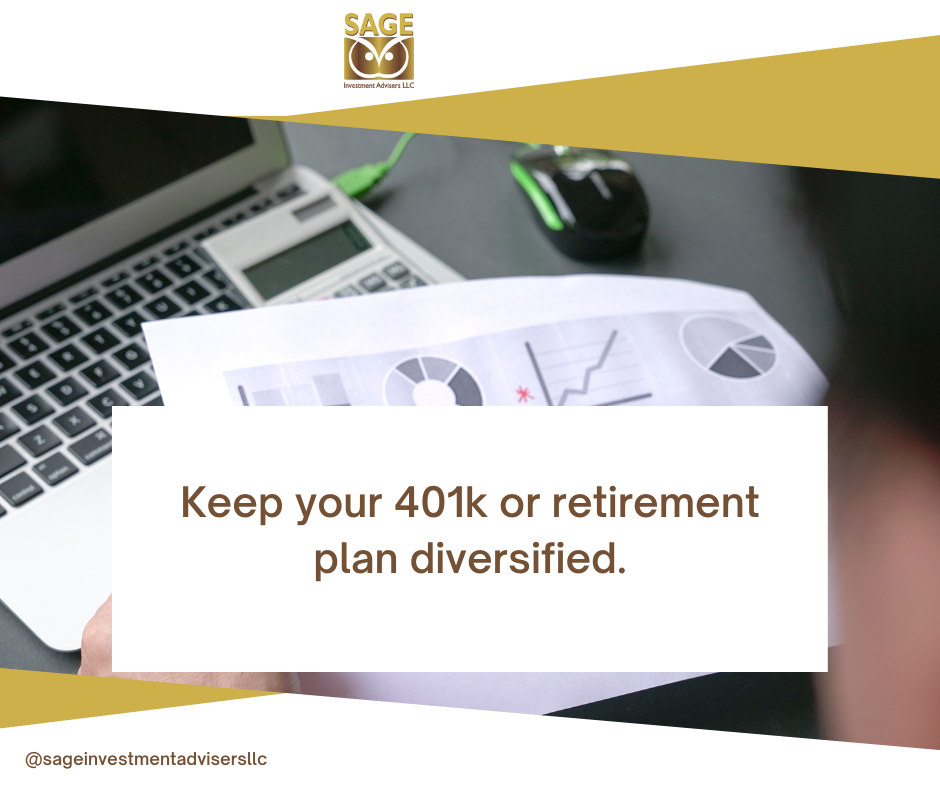Financial Planner: Questions to Ask When Finding The Right One for You
Your financial advisor is essentially your financial planning partner who will work with you by creating a strategy to meet your financial goals such as saving for retirement. Your financial planner will act as an educator by helping you understand what is involved in the plan to meet your future goals; they will also become a trusted guide, helping you to navigate the various financial topics such as retirement.
Sage Investment Advisers, LLC located in Poughkeepsie, NY, helps clients by first meeting with them to learn about their current financial status and figure out your financial health. We take our role of financial planner for our clients seriously, we focus on helping them to understand and navigate the complexity of investments, taxes, and insurance.
Understanding the Role of a Financial Planner
Many people confuse a financial planner with a stockbroker, and then they find themselves playing the public market in ways that work against their goals. Further, planners are not public accountants; it is not their job to manage tax filings or track spending.
Because a planner acts as a professional adviser, they are often seen as filling in a gray area between the tax accountant and the brokerage trader. Some financial planners are also bridging the gap between CPAs and traders by offering investment management, tax solutions and full-service financial planning. That said, there are ways to make sure a planner is qualified to do the work needed for proper asset and wealth management. Here are seven questions that you should be asking when hiring a new financial planner.
Question #1: How Long Have You Been Practicing?
While most planners are qualified, finding someone that you trust with your savings and the future of your financial path is incredibly important. Everyone needs to get a start somewhere, but finding someone with experience is key.
Question #2: What Are Your Credentials?
Choose a financial planner who possesses the appropriate professional qualifications to meet your needs. There are a number of credentials that a financial planner may hold; our firm is a Registered Investment Advisor (RIA), which is one of the important credentials when choosing an experienced and knowledgeable financial planner.
Other credentials you may want to look out for include:
Chartered Financial Analyst (CFA)
Personal Financial Specialist (PFS)
Retirement Management Analyst® (FMA®)
Retirement Income Certified Professional® (RICP®)
Certified Retirement Counselor® (CRC®)
Registered Investment Advisor (RIA)
Question #3: What Is Your Niche?
Some financial planners may choose to work with a niche clientele - pre-retirees, doctors, educators, women, etc. Alternatively, some planners are more accommodating to helping everyone who meets some general criteria - regardless of age or profession.
Finding a planner who works with others like you is a great way to make sure they will understand your specific needs and be familiar with options available to you.
Question #4: Do You Have References?
If you are looking for a fee-only planner, the National Association of Personal Financial Advisors (NAPFA) provides a good start to find planners who carry high-level standards and ethical qualifications. Broker Check by FINRA is another helpful resource to review any complaints that may have been filed against the advisor you are considering working with.
Question #5: What Are Your Retirement Planning Projections?
How much money will you be able to spend each year from now through your life expectancy?
This is based on assumptions about:
The rate of return of your assets
The pace of inflation
Your spending habits
You’ll want to work with a planner who is able to help you think in the long term and offer realistic expectations of what retirement may look like. They should be able to help you balance your ability to live comfortably today while preparing for a sound retirement.
Question #6: How Are You Compensated?
Transparency is important. Make sure your planner explains the fees clearly so you have a solid understanding of what you’re expected to pay and the services you will receive. If you are going to be working with a fee-only financial planner, they will be incentivized to provide advice and service that is in line with your goals.
A financial planner is a crucial component in your life to ensuring a current and future lifestyle through saving and investing. When choosing a financial planner to work with consider their experience in the field, client testimonials, their knowledge, and their personality. From there you can decide if they are a good fit for you and your needs. Keep in mind the above questions when interviewing financial planners, so you are able to find the right financial planner for you.
Published by Sage Investment Advisers, LLC in Poughkeepsie, NY

Summary: Sage Investment Advisers Named Best Financial Planner in the Hudson Valley 2025 Sage Investment Advisers, LLC, a fiduciary wealth management firm based in Wappingers Falls, has been named Best Financial Planner in the Hudson Valley for 2025 by Hudson Valley Magazine. The award highlights Sage’s trusted approach to retirement planning, investment management, and wealth preservation, serving clients across the Hudson Valley. This recognition adds to the firm’s growing list of honors, including multiple Five-Star Wealth Manager Awards, USA Today’s Best Financial Advisor Firm, and Daily Voice’s Readers’ Choice Award. President Jerry Schuder and Vice President Joe Guarneri credit the achievement to the team’s dedication to guiding clients with integrity and care.


